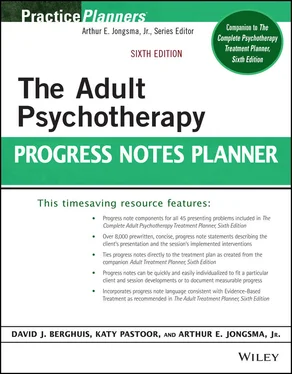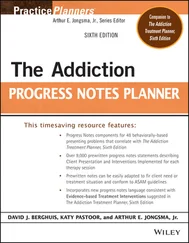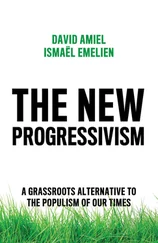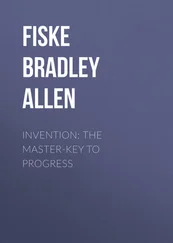5 Fails to Listen (5)The client does not seem to listen to others even when spoken to directly.The client reports problems with day-to-day functioning due to failure to listen to others.The client reports greater control over his/her listening when others are speaking to him/her/them.
6 Restless (6)The client reported that he/she/they cannot sit still for a significant length of time and often feels restless.The client gave evidence of being restless within the session, often moving about in his/her/their chair.The client's ability to rest comfortably for a longer period of time has increased.
7 Lack of Follow-Through (7)The client reported that he/she/they struggle to follow through on instructions and fail to finish duties.Family members reported frustration at the client's pattern of failing to finish duties.The client has shown progress in follow-through and completing duties.
8 Inability to Engage Quietly (8)The client reports an inability to engage in leisure activities quietly.The client has identified problems with others due to inability to engage in leisure activities quietly.The client has improved in his/her ability to engage in leisure activities at an appropriate noise level.
9 Disorganization (9)The client has a history of disorganization in many areas of his/her/their life.The client's disorganization is evident in areas related to home and work, leading him/her to be less efficient and less effective than he/she/they could be.The client has made significant progress in increasing his/her/their organization and is using that organization to become more efficient.The client uses lists and reminders to increase his/her organizational ability.
10 On the Go (10)The client is often described as “on the go” or acting as if “driven by a motor.”The client has identified problems with overall functioning due to his/her/their “on the go” behaviors.The client has been able to improve in functioning as he/she/they have reduced their “on the go” behaviors.
11 Avoidance (11)The client often avoids, dislikes, or is reluctant to engage in tasks that require sustained mental effort.The client has struggled to maintain employment or struggles in school due to his/her/their avoidance of tasks that require sustained mental effort.The client has reduced their avoidance of difficult tasks and reports improved functioning in a variety of areas.
12 Excessive Talking (12)The client talks excessively.The client's family and friends have reported frustrations due to excessive talking.The client has improved in his/her/their ability to talk an appropriate amount.
13 Losing Items (13)The client often loses items necessary for tasks or activities.The client identified problematic functioning due to losing items necessary for his/her/their day-to-day tasks.The client has managed self better in order to reduce loss of necessary items.
14 Interrupting (14)The client often interrupts, doesn't wait for his/her/their turn, or blurts out answers before a question has been completed.The client's friends and family have identified problems related to the client's inability to function appropriately in social situations.The client's work relationships have suffered due to an inability to function appropriately.The client has reduced the need to interrupt others, now waits for others, blurts out answers less, and has identified positive results from this improvement.
15 Distractibility (15)The client reported that he/she/they are easily distracted and his/her/their attention is drawn away from the task at hand.The client gave evidence of distractibility within today's session.The client's distractibility is diminishing and his/her focused concentration is increasing.
16 Forgetful (16)The client identified often being forgetful in daily activities.The client's day-to-day functioning has suffered due to his/her/their forgetfulness.The client has identified ways to be less forgetful and identified positive experiences.
INTERVENTIONS IMPLEMENTED
1 Establish Rapport (1) 2 Caring was conveyed to the client through support, warmth, and empathy.The client was provided with nonjudgmental support and a level of trust was developed.The client was urged to feel safe in expressing his/her/their ADHD symptoms.The client began to express feelings more freely as rapport and trust level have increased.The client has continued to experience difficulty being open and direct about his/her/their expression of painful feelings; he/she/they were encouraged to use the safe haven of therapy to express these difficult issues.
2 Focus on Strengthening Therapeutic Relationship (2)The relationship with the client was strengthened using empirically supported factors.The relationship with client was strengthened through the implementation of a collaborative approach, agreement on goals, demonstration of empathy, verbalization of positive regard, and collection of client feedback.The client reacted positively to the relationship-strengthening measures taken.The client verbalized feeling supported and understood during therapy sessions.Despite attempts to strengthen the therapeutic relationship the client reports feeling distant and misunderstood.The client has indicated that sessions are not helpful and will be terminating therapy.
3 Conduct Psychosocial Assessment (3)A thorough psychosocial assessment was conducted, including the past and present symptoms of ADHD and their effects on educational, occupational, and social functioning.The psychosocial assessment reflects significant concerns related to ADHD, and this was communicated to the client.The psychosocial assessment reflects minimal concerns related to ADHD, and this was reflected to the client.
4 Conduct/Refer for Psychological Testing (4)The client was administered psychological testing in order to establish or rule out the presence of an ADHD problem.Psychological testing has established the presence of an ADHD problem.The psychological testing failed to confirm the presence of ADHD.The psychological testing results were processed with the client to assist him/her/them in understanding his/her/their condition and to answer any questions that he/she/they might have.The client understood the explanation of the psychological testing and has accepted the presence of an ADHD problem.The client has denied the presence of ADHD and refused to accept the confirming results of the psychological testing; he/she/they were urged to be more open about this diagnosis.
5 Refer for Physician Assessment Regarding Etiology (5)The client was referred to a physician to rule out nonpsychiatric medical etiologies for his/her/their ADHD.The client was referred to a physician to rule out substance-induced etiologies for his/her/their level of ADHD.The client has complied with the referral to a physician and the results of this evaluation were reviewed.The client has not complied with the referral for a medical evaluation and was redirected to do so.
6 Process Medical and Psychological Evaluation (6)Results and recommendations of the medical evaluation were processed with the client and all questions were answered.The results and recommendations of the psychological evaluation were processed with the client and all questions were answered.As a result of the physician's evaluation, the client was prescribed medication to assist in the control of ADHD symptomatology.As a result of the psychological evaluation, the client was provided with several different techniques to assist in the control of ADHD symptomatology.
7 Hold a Conjoint Session to Give Evaluation Feedback (7)A conjoint session was held with the client and his/her/their significant others in order to present the results of the psychological and medical evaluations.All questions regarding the evaluation results were processed.The client's family members were solicited for support regarding his/her/their compliance with treatment for his/her/their ADHD symptoms.The client's family members were verbally reinforced as they gave strong support to the client regarding medical and psychological treatment for his/her/their ADHD symptoms.
Читать дальше












